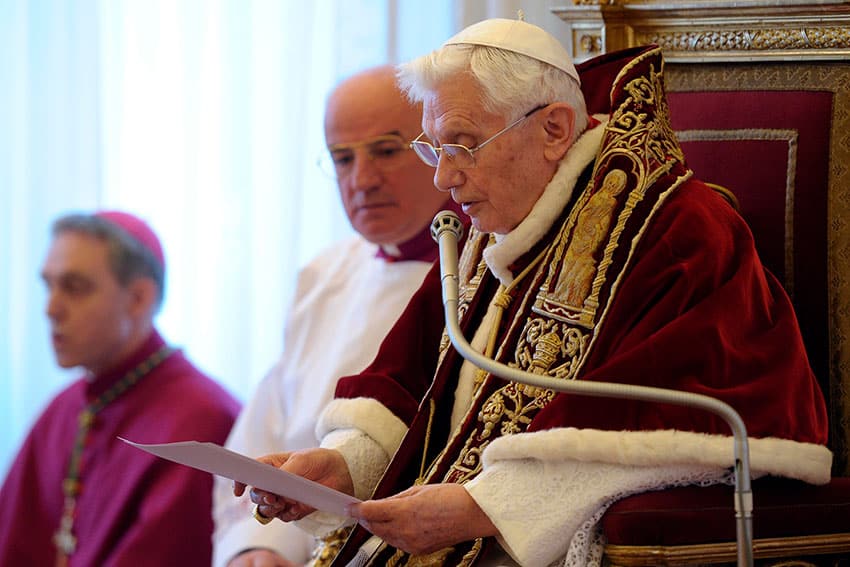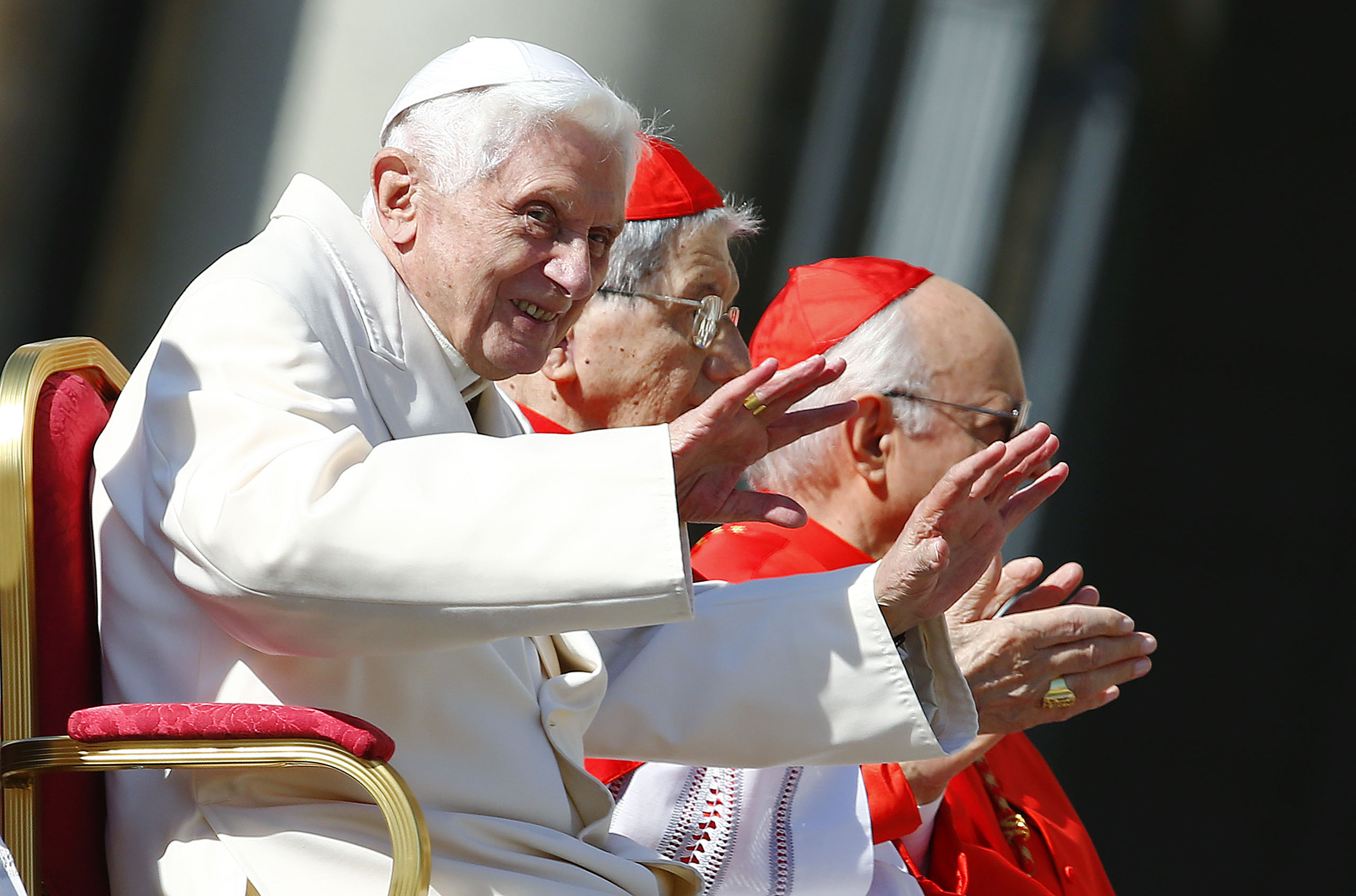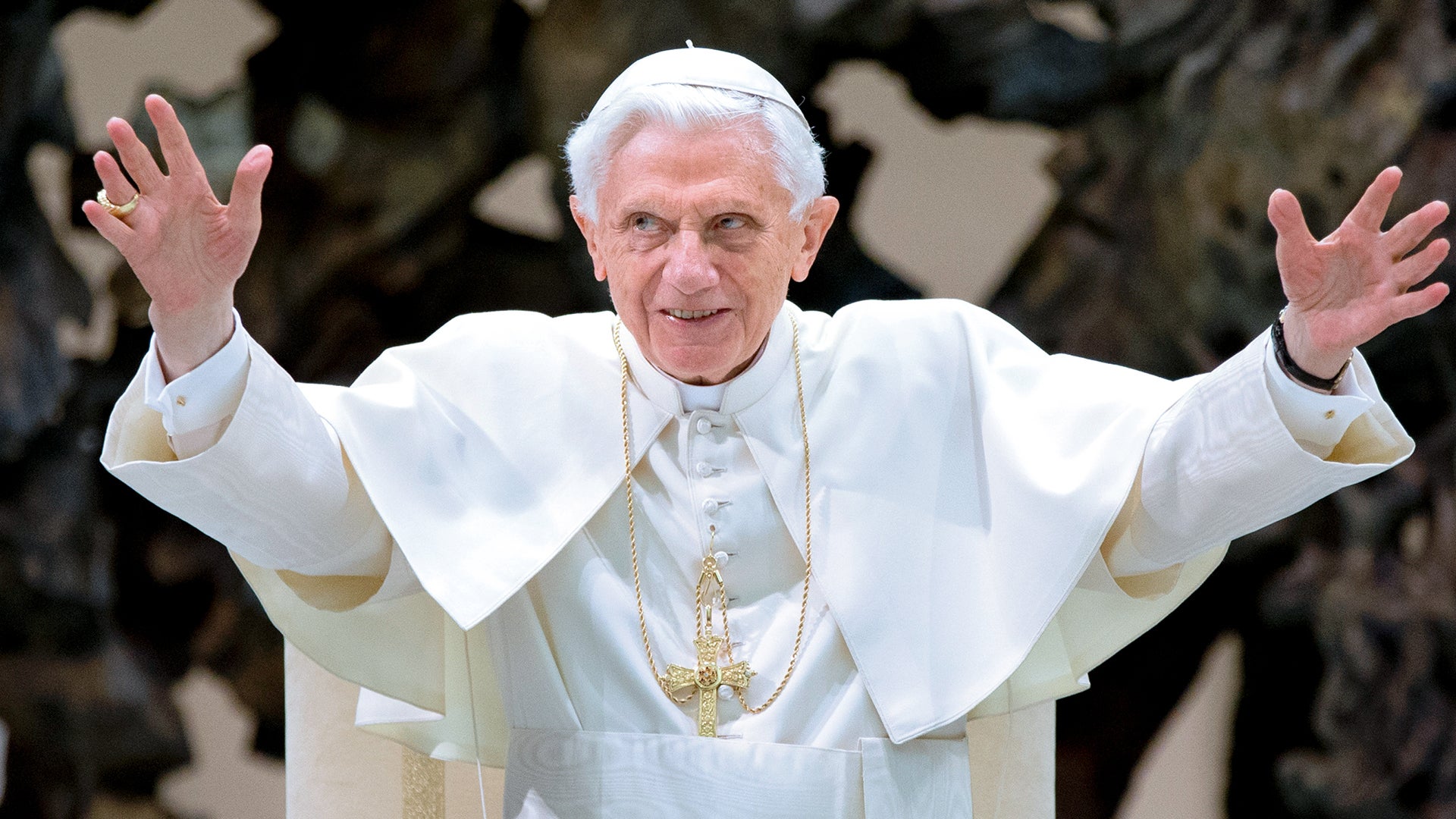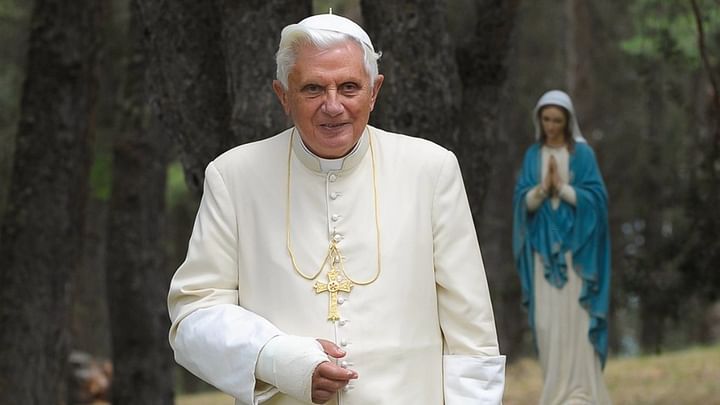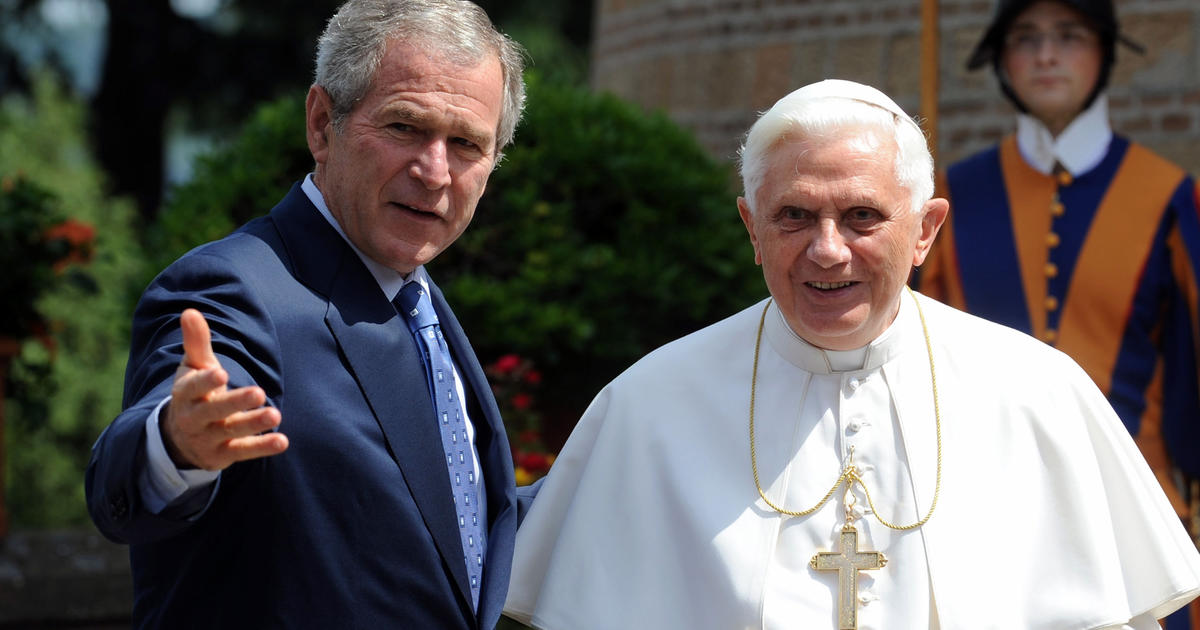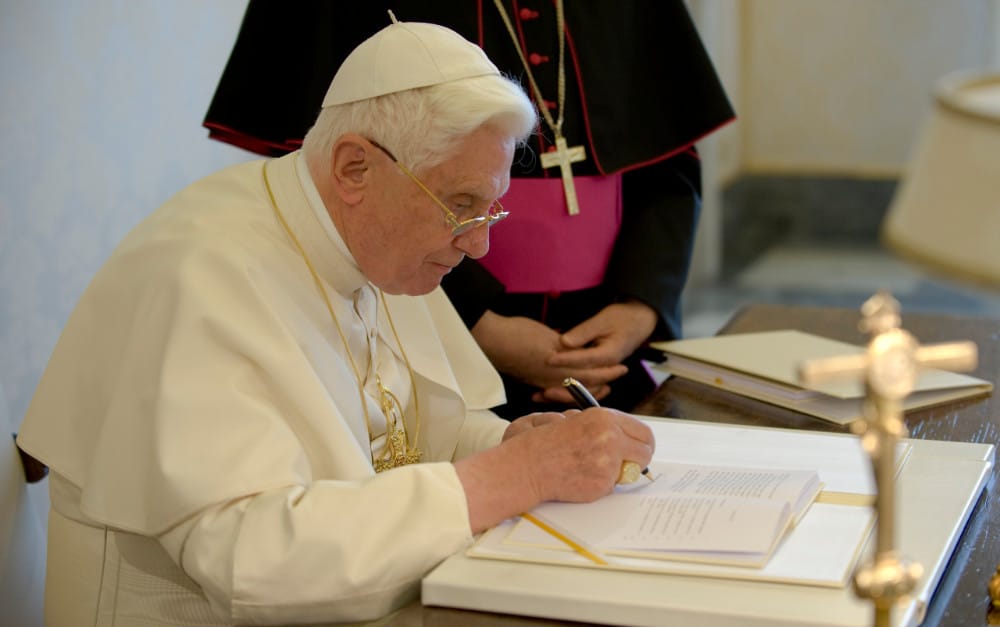World
Former Pope Benedict XVI Dead at Age 95

Former Pope Benedict XVI, the first pontiff to resign in 600 years, died on Saturday at the age of 95 in the Vatican, according to a Holy See spokesman. “With sadness, I inform you that Pope Emeritus Benedict XVI died today at 9.34 a.m. in the Mater Ecclesiae Monastery in the Vatican,” a spokesman said in a written statement.
According to the Vatican, Pope Francis will preside over his predecessor’s funeral on January 5.
Benedict, the first German pope in 1,000 years, stepped down in 2013 due to failing health, leaving behind a Catholic Church beleaguered by sexual abuse scandals, mired in mismanagement, and divided between conservatives and progressives.
He had good relations with his successor, but his continued presence inside the Vatican after he stepped down polarized the Church ideologically even more.
Concerned about Pope Francis‘s progressive moves, conservatives looked to Benedict as the defender of tradition. Several times, he had to tell nostalgic visitors, “There is only one Pope, and his name is Francis.”
Pope Benedict, a pianist and formidable theologian, was a weak leader who struggled to impose himself on the opaque Vatican bureaucracy and stumbled from crisis to crisis during his eight-year reign.
He repeatedly apologized for the Church’s failure to root out clergy sexual abuse of children, and despite being the first pope to take serious action against abuse, his efforts failed to halt a rapid decline in church attendance in the West, particularly in Europe.
Pope Benedict XVI Resigns
In 2022, an independent report in his native Germany claimed Benedict failed to act in four abuse cases while serving as Archbishop of Munich between 1977 and 1982. After being shaken by the report, he apologized in an emotional personal letter and asked for forgiveness.
In a detailed rebuttal, his lawyers argued that he was not directly to blame.
Victims’ groups claimed that the evasive response squandered an opportunity arising from a scandal that shook the Church worldwide.
On February 11, 2013, Benedict shocked the world by announcing in Latin that he was resigning, telling cardinals that he was too old and frail to lead an institution with over 1.3 billion members.
It was always going to be difficult following the death of his charismatic predecessor, Pope John Paul II, in 2005, and Benedict admitted to difficulties in an emotional farewell address.
“There were happy and light moments, but there were also difficult moments.” “There were moments… when the seas were rough and the wind blew against us, and it seemed as if the Lord was sleeping,” Benedict said to a crowd of more than 150,000 people at his last general audience.
On February 28, 2013, Benedict took up residence at the papal summer retreat at Castelgandolfo, south of Rome, while cardinals from around the world gathered in the Vatican to elect his successor.
Pope Francis’ election
Prior to formally stepping down, Benedict and his aides chose the title “pope emeritus” and decided he would continue to wear a white cassock, albeit a slightly modified version. Some in the Church objected, claiming that he had tied his successor’s hands.
They said he should have dressed like a cardinal or a priest in red or black.
Following Pope Francis’ election on March 13, Benedict moved into a converted convent on Vatican grounds to spend his final years praying, reading, playing the piano, and receiving visitors.
He appeared in public only on rare occasions, usually for major Church ceremonies, though he paid an emotional visit to his ailing elder brother Georg, a priest, in Bavaria in June 2020. Georg died soon after, at the age of 96.
Benedict did not keep his promise to remain “hidden from the world,” and his writings in retirement occasionally caused controversy and confusion.
In a 2019 essay for a German Church magazine, he blamed the crisis over priest abuse of children on the 1960s sexual revolution, what he called homosexual cliques in seminaries, and a general collapse in morality.
Critics accused him of attempting to shift blame away from the institutional Church’s hierarchy. Conservatives, however, rejoiced, and rallied to his defense.
Benedict and the cardinal
The ambiguity surrounding Benedict’s role reached a head in January 2020, when it was revealed that he was involved in a book written by a conservative cardinal that some saw as an attempt to influence a document Pope Francis was preparing.
As a result, Francis fired Archbishop Georg Ganswein, Benedict’s secretary, from a top Vatican position. Many people believed Ganswein misled Benedict, the cardinal, or both as a middleman between Benedict and the cardinal.
Some Vatican officials have called for clear rules regarding the status of any future pontiff who resigns as a result of the incident.
Francis has stated that if he were to resign, he would prefer the title Emeritus Bishop of Rome, as suggested by some. He has also stated that he will not live in the Vatican but rather in a Rome home for retired priests.
Benedict, an uncompromising conservative on social and theological issues, literally cloaked himself in tradition during his papacy, frequently donning fur-trimmed capes and red shoes in public appearances — a stark contrast to his successor’s more humble, down-to-earth style.
He enraged Muslims by implying that Islam is inherently violent, and he enraged Jews by rehabilitating a Holocaust denier. The gaffes and blunders reached a climax in 2012, when leaked documents revealed corruption, intrigue, and feuding within the Vatican.
As a result of the “Vatileaks” case, his butler, Paolo Gabriele, was arrested and convicted of passing secret documents to a journalist. Benedict later forgave him. Gabriele was hired at a Vatican-owned hospital and died there in 2020.
Gay Clergy Lobby
The media speculated that the saga, which exposed allegations of a gay clergy lobby operating against the pope, might have put pressure on him to resign. Benedict insisted on stepping down because he could no longer bear the full weight of the papacy, including the exhausting international travel required by the job.
In a book-length interview published in 2016, he acknowledged his flaws but stated that his papacy was not a failure.
“Perhaps one of my weaknesses is a lack of resolve in governing and making decisions. In reality, I am more of a professor, someone who reflects and meditates on spiritual issues,” Benedict stated in the book “Last Testament,” written by German journalist Peter Seewald.
“Practical government is not my strong point and that is certainly a weakness. But I don’t consider myself a failure.” On April 16, 1927, in the southern German village of Marktl, close to Austria, Joseph Aloisius Ratzinger was born.
During World War II, he was forcibly enrolled in the Hitler Youth and briefly held as a prisoner of war by the Allies, but he was never a member of the Nazi party.
“Neither Ratzinger nor any member of his family were National Socialists,” wrote John Allen, a leading Church expert, in a biography of Benedict.
Ratzinger was ordained as a priest in 1951 and rose to prominence as a liberal theological adviser at the Second Vatican Council, which convened in 1962 and resulted in profound Church reform.
God’s Rottweiler
The Marxism and atheism of the 1968 student protests across Europe, on the other hand, prompted him to become more conservative in order to defend the faith against growing secularism.
After stints as a theology professor and then Archbishop of Munich, Ratzinger was appointed in 1981 to head the Congregation for the Doctrine of the Faith (CDF), the successor office to the Inquisition, where he earned the epithet “God’s Rottweiler”.
After a period of experimentation, he and Pope John Paul agreed that traditional doctrine needed to be restored in the Church.
Ratzinger first addressed the popular “liberation theology” in Latin America, ordering the one-year silence of Brazilian friar Leonardo Boff in 1985, whose writings were criticized for using Marxist ideas.
Ratzinger applied pressure on theologians, primarily in Asia, who saw non-Christian religions as part of God’s plan for humanity in the 1990s.
Ratzinger’s office condemned “radical feminism” in a 2004 document as an ideology that undermined the family and obscured the natural differences between men and women.
Benedict sought to show the world the gentler side of his nature as Pope from 2005, but he never achieved the “rock star” status of John Paul or appeared particularly at ease in the job.
Child abuse scandals dogged him for the majority of his pontificate. He called for an official investigation into abuse in Ireland, which resulted in the resignation of several bishops.
During his pontificate, however, the Vatican’s relations with once-devoutly Catholic Ireland deteriorated. In 2011, Dublin closed its embassy to the Holy See.
Profound consternation
Victims demanded that the International Criminal Court investigate him. The Vatican ruled that he could not be held accountable for the crimes of others, and the court declined to hear the case.
In September 2013, he denied covering up the scandals. “As for your mentioning moral abuse of minors by priests, as you know, I can only acknowledge it with profound consternation.
“However, I never attempted to conceal these facts,” he wrote in a letter to Italian author Piergiorgio Odifreddi.
Benedict visited his homeland three times as Pope, confronting its dark past at the Nazi death camp at Auschwitz in Poland. As a “son of Germany,” he prayed and asked why God was silent when 1.5 million people, mostly Jews, died there during World War II.
One of his trips to Germany triggered the first major crisis of his pontificate. In a 2006 university lecture, he quoted a 14th century Byzantine emperor as saying that Islam had only brought evil to the world, which was spread by the sword.
Following protests that included attacks on churches in the Middle East and the killing of a nun in Somalia, the pope apologized for any confusion his speech had caused.
Later that year, in a move widely perceived as conciliatory, he made a historic trip to predominantly Muslim Turkey, praying in Istanbul’s Blue Mosque with the city’s grand mufti.
Offending the Jews
In 2008, the pope visited the United States, where he apologized for the sexual abuse scandal, promised that pedophile priests would be expelled, and consoled abuse victims. But Benedict made a series of errors in 2009.
After lifting the excommunication of four traditionalist bishops, one of whom was a notorious Holocaust denier, the Jewish world and many Catholics were outraged. Benedict later stated that the Vatican should have done more research on him.
Jews were offended again in December 2009, when he relaunched the process of resurrecting his wartime predecessor Pius XII, who was accused by some Jews of turning a blind eye to the Holocaust, after a two-year pause for reflection.
In March 2009, the Pope shocked the world by telling reporters on a plane flying to Africa that the use of condoms in the fight against AIDS only made matters worse.
Benedict preferred to appoint men he trusted at the Vatican, and some of his early appointments were questioned.
He appointed Cardinal Tarcisio Bertone, who had worked with him in the Vatican’s doctrinal office for years, as secretary of state, despite the fact that Bertone had no diplomatic experience. Bertone was later embroiled in a financial scandal involving the renovation of his Vatican apartment.
Pope Benedict wrote three encyclicals
Other religions criticized Benedict in 2007 when he approved a document that reiterated the Vatican’s position that non-Catholic Christian denominations were not full churches of Jesus Christ.
Critics saw his papacy as a concerted effort to reverse the reforms of the Second Vatican Council of 1962-1965, which modernized the Church in sometimes turbulent ways.
Some Council decisions were rewritten by Benedict to conform to traditional practices such as the Latin Mass and highly centralized Vatican rule. One of the themes he frequently returned to was the threat of relativism, which rejected the idea that moral values were not absolute but rather relative to those who held them and the times in which they lived.
Pope Benedict wrote three encyclicals, the most important type of papal document, including Spe Salvi (Saved by Hope), an attack on atheism, in 2007. The 2009 Caritas in Veritate (Charity in Truth) declaration called for a rethinking of how the global economy is run.
Despite the difficulties that came with having two men dressed in white in the Vatican, Francis developed a warm relationship with the man who was once dubbed “the Panzer Cardinal” and described it as being like having a grandfather in the house.
“He speaks little… but with the same profundity,” Francis once said.
Science
Webb Telescope Uncovers Merger Of Two Massive Black Holes From Early Universe
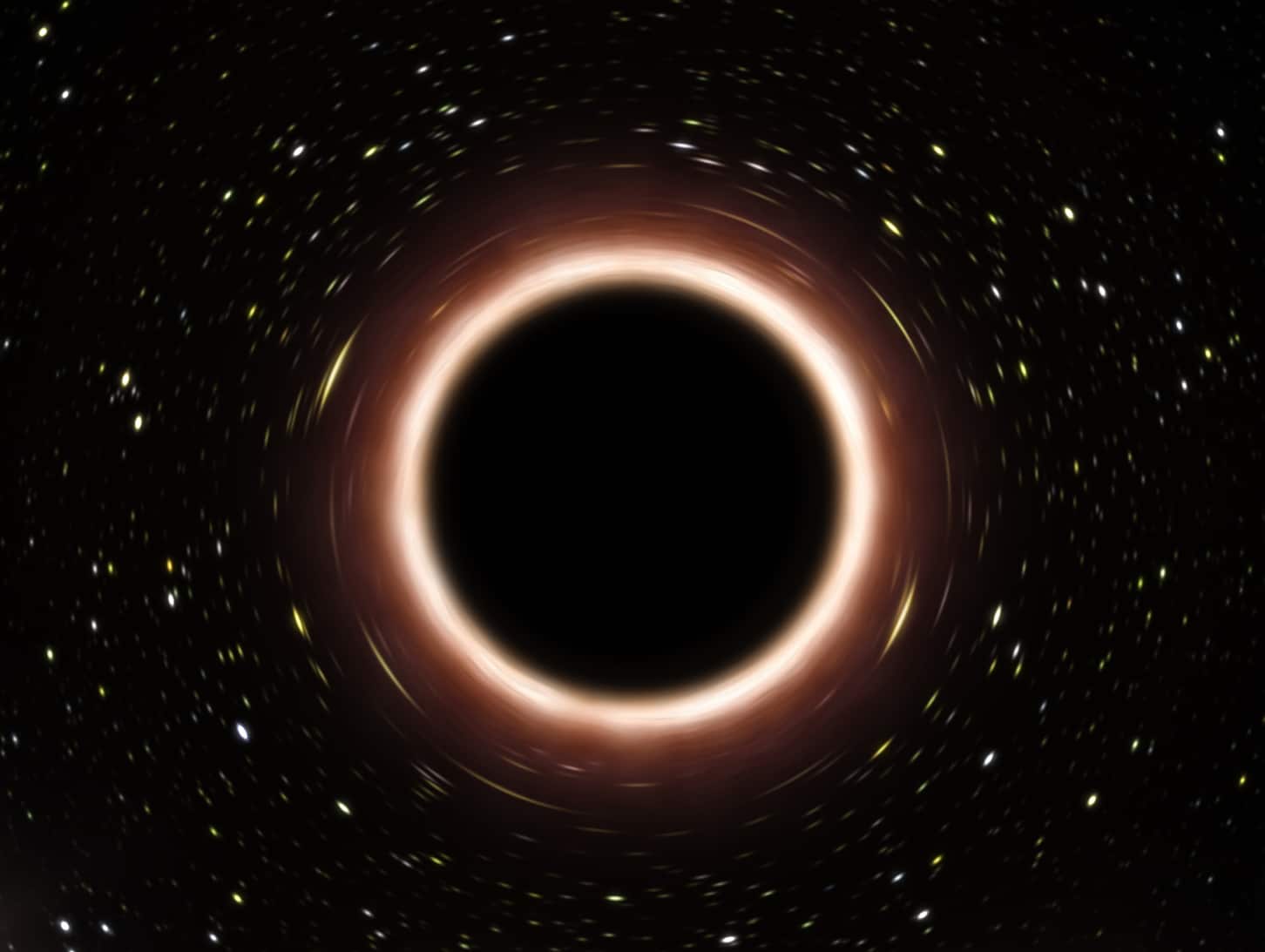
CAPE CANAVERAL, Florida – The Webb Space Telescope discovered the earliest known merger of black holes.
These two massive holes and their galaxies formed only 740 million years after the universe-creating Big Bang. Scientists claimed Thursday that they have made the furthest distant detection of merging holes ever.

New Atlas – VOR News Image
Webb Telescope Uncovers Merger Of Two Massive Black Holes From Early Universe
A black hole is 50 million times bigger than our sun. The other is estimated to be similar in size but buried in dense gas, making it difficult to measure.
Until today, astronomers didn’t know how supermassive black holes got so huge.

Daily Sabah – VOR News Image
Webb Telescope Uncovers Merger Of Two Massive Black Holes From Early Universe
The current findings, published in the Monthly Notices of the Royal Astronomical Society, imply that mergers explain how holes can expand quickly — “even at cosmic dawn,” according to lead author Hannah Ubler of the University of Cambridge.
“Massive holes have been shaping the evolution of galaxies from the very beginning,” Ubler stated.
AP – VOR News Image
Webb Telescope Uncovers Merger Of Two Massive Black Holes From Early Universe
Webb, the largest and most powerful observatory ever launched into space, will be the successor to NASA’s Hubble Space Telescope when it launches in 2021. The infrared observatory, a joint US-European initiative, scans the universe from one million miles (1.6 million kilometers) from Earth.
SOURCE – (AP)
World
China And Russia Reaffirm Their Close Ties As Moscow Presses Its Offensive In Ukraine
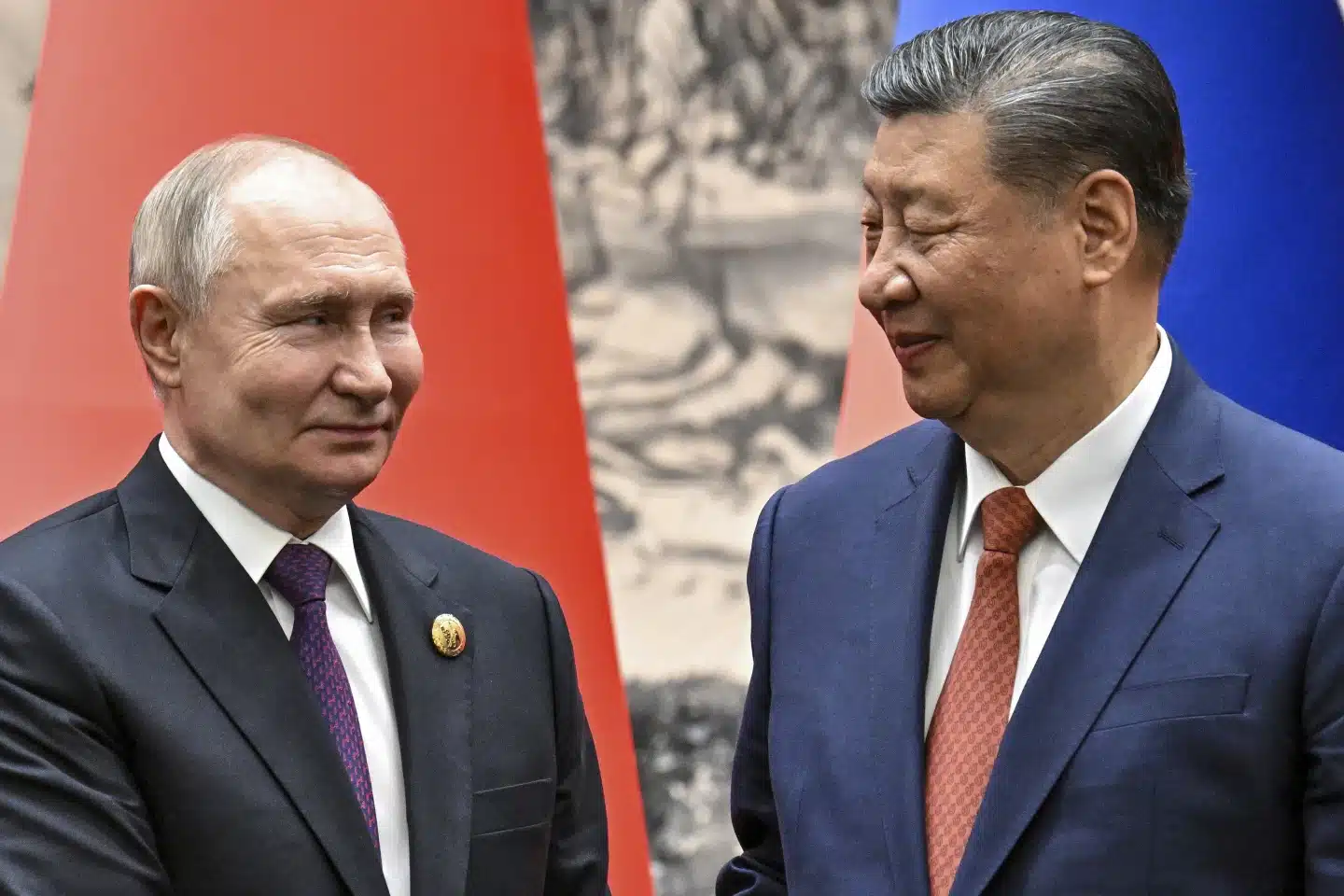
BEIJING — On Thursday, Russian President Vladimir Putin and Chinese President Xi Jinping reiterated their “no-limits” friendship, which has expanded as both countries face mounting tensions with the West, and blasted US military deployments in Asia and the Pacific.
At their summit in Beijing, Putin hailed Xi for China’s recommendations to settle the conflict in Ukraine, which Ukraine and its Western allies have rejected as mostly adopting the Kremlin’s line.
Putin’s two-day state visit to one of his biggest allies and commercial partners comes as Russian forces launch an operation in northeastern Ukraine’s Kharkiv region, marking the most serious border incursion since the full-scale invasion began on February 24, 2022.
China claims to be impartial in the crisis, but it has supported the Kremlin’s accusations that the West led Russia into attacking Ukraine, and it continues to supply vital components required by Moscow for weapons manufacture.
AP – VOR News Image
China And Russia Reaffirm Their Close Ties As Moscow Presses Its Offensive In Ukraine
China, which has not condemned the invasion, suggested a broad-based peace plan in 2023, calling for a cease-fire and direct talks between Moscow and Kyiv. Both Ukraine and the West rejected the idea because it did not call on Russia to vacate Ukraine’s occupied territories.
China also lent a verbal nod to Russia’s narrative about Nazism in Ukraine, with a joint statement issued Thursday saying Moscow and Beijing should protect the post-World War II order and “severely condemn the glorification of or even attempts to revive Nazism and militarism.”
Putin has claimed the “denazification” of Ukraine as a primary purpose of the military action, falsely referring to Ukrainian President Volodymyr Zelenskyy’s government as neo-Nazis.
The mostly symbolic and ceremonial visit emphasized cooperation between two countries facing challenges in their relations with the United States and Europe.
“Both sides want to show that despite what is happening globally, despite the pressure that both sides are facing from the U.S., both sides are not about to turn their backs on each other anytime soon,” said Hoo Tiang Boon, a Chinese foreign policy researcher at Singapore’s Nanyang Technological University.
While Putin and Xi stated they wanted to stop the war, they made no new ideas in their public remarks.
“China hopes for the early return of Europe to peace and stability and will continue to play a constructive role toward this,” Xi said in prepared remarks to the media in Beijing’s Great Hall of the People. His statements echoed China’s overarching peace initiative.
Earlier in the day, Putin was greeted in Tiananmen Square with military fanfare and cannon fire.
On the eve of his visit, Putin stated that China’s proposal may “lay the groundwork for a political and diplomatic process that would take Russia’s security concerns into account and contribute to achieving long-term and sustainable peace.”
Zelenskyy has stated that any negotiations must entail the restoration of Ukraine’s territorial integrity, the departure of Russian soldiers, the release of all captives, a tribunal for those responsible for the assault, and security assurances for Ukraine.
AP – VOR news Image
China And Russia Reaffirm Their Close Ties As Moscow Presses Its Offensive In Ukraine
Putin said he would brief Xi on the situation in Ukraine, adding, “We appreciate the initiative of our Chinese colleagues and friends to regulate the situation.”
Following Russia’s latest attack in Ukraine last week, the war has reached a crucial point as Ukraine’s depleted military awaits new supplies of anti-aircraft missiles and artillery rounds from the United States, which have been delayed for months.
China and Russia’s joint statement also harshly slammed US foreign policy, citing US-formed alliances as having a “Cold War mentality.”
“Both sides expressed serious concern about the consequences caused to the strategic stability of the Asia-Pacific region by AUKUS,” according to the statement, referring to the acronym for Australia, the United Kingdom, and the United States.
China and Russia have accused the United States of installing land-based intermediate-range missile systems in the Asia-Pacific region under the guise of joint drills with allies. They claimed that the United States’ operations in Asia were “changing the balance of power” and “endangering the security of all countries in the region.”
The united declaration underscored China’s support for Russia.
“There’s so much Chinese falling over themselves to give Russia face and respect without saying anything specific, or committing to anything,” said Susan Thornton, a former diplomat and senior fellow at Yale Law School’s Paul Tsai China Center.
The meeting was another endorsement of China and Russia’s amicable “no limits” friendship, which they signed in 2022, just before Moscow invaded Ukraine.
Since then, Russia has been increasingly economically dependent on China since Western sanctions have limited its access to most of the global commercial system. China’s expanding commerce with Russia, which reached $240 billion last year, has helped the country buffer some of the worst effects of sanctions.
Moscow has transferred most of its energy exports to China and relied on Chinese enterprises to purchase high-tech components for Russian defense sectors to avoid Western sanctions.
AP – VOR News Image
China And Russia Reaffirm Their Close Ties As Moscow Presses Its Offensive In Ukraine
“I and President Putin agree we should actively look for convergence points of the interests of both countries, to develop each’s advantages, and deepen integration of interests, realizing each others’ achievements,” added Xi.
Xi congratulated Putin on the start of his fifth term in office and commemorated the 75th anniversary of diplomatic relations between the former Soviet Union and the People’s Republic of China, which were formed after a civil war in 1949. In the March election, Putin eliminated all significant political opponents and faced no serious threat. He, like Xi, has not spelled out a succession strategy.
“In a famous song of that time, 75 years ago — it is still performed today — there is a phrase that has become a catchphrase: ‘Russians and Chinese are brothers forever,'” Putin stated.
During the war, Russia and China expanded their military ties. In recent years, they have conducted several cooperative war simulations, including naval drills and long-range bomber patrols over the Sea of Japan and the East China Sea. Russian and Chinese ground forces have also moved to the other country’s territory to conduct joint training.
China continues to be a major market for Russian military hardware, while the country’s defense industry is rapidly developing, including the production of aircraft carriers and nuclear submarines.
Putin has already stated that Russia has shared highly sensitive military technologies with China, considerably improving its defense strength.
SOURCE -(AP)
World
Slovakia Prime Minister Robert Fico Recovering Attempt on His Life
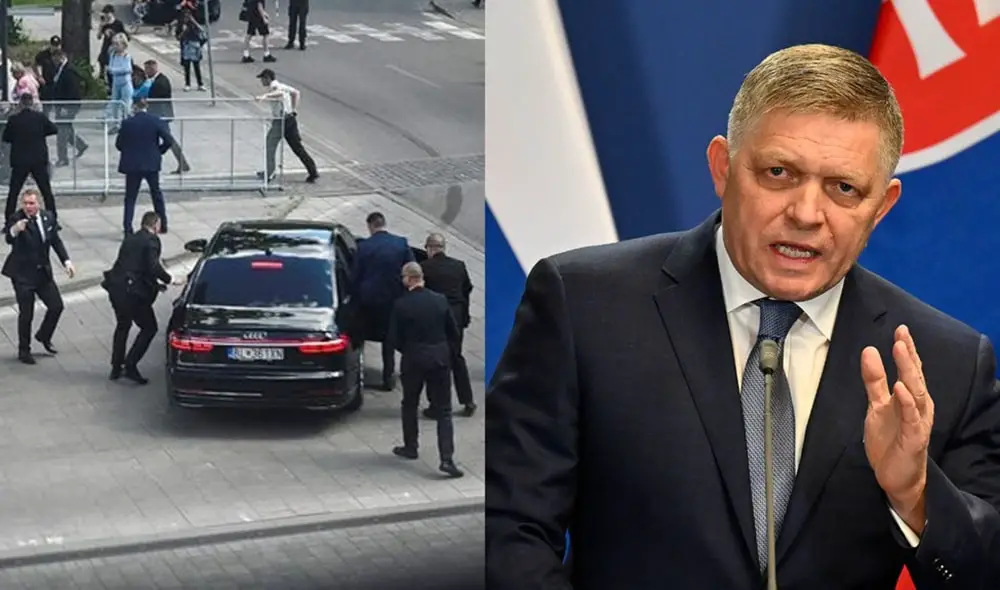
Slovakia Prime Minister Robert Fico is no longer in critical condition after being wounded in an assassination attempt while leaving a government meeting on Wednesday, a government minister said.
The gunman shot Fico, 59, five times, leaving the prime minister in critical condition and requiring surgery hours later on Wednesday evening.
“I was very shocked… fortunately, as far as I know, the operation went well – and I guess in the end, he will survive… he’s not in a life-threatening situation right now,” Slovak Deputy Prime Minister and Environment Minister Tomas Taraba told the BBC’s News.
Taraba stated that one bullet passed through Robert Fico’s stomach and another struck a joint. News outlet According to an unidentified source, Fico has recovered from surgery and is in stable condition.
Defence Minister Robert Kalinak told a press conference hours earlier that Fico had suffered “serious polytrauma” as a result of many gunshot wounds. Slovakia’s Interior Minister Matus Sutaj Estok previously stated that Robert Fico was in a life-threatening condition while still in the surgery room.
“This assassination (attempt) was politically motivated, and the perpetrator’s decision came soon after the presidential election,” Sutaj Estok added, referring to the April election won by a Fico ally, Peter Pellegrini.
The shooting in the central Slovak town of Handlova, which Slovak media reported was carried out by a 71-year-old man, shocked the small central European country and prompted international criticism.
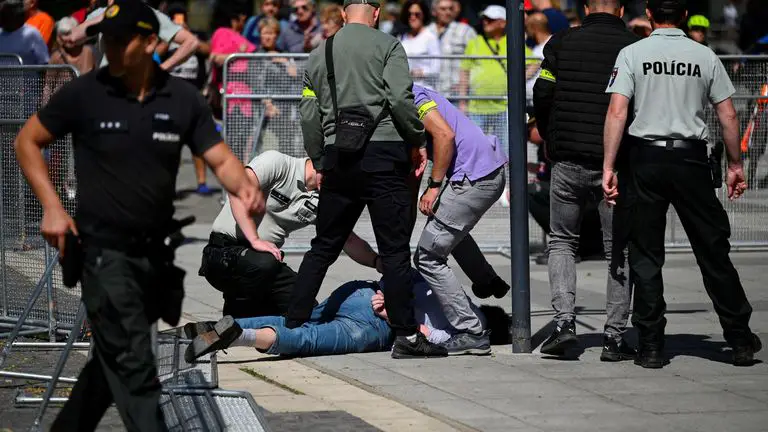
The moments after Slovak PM shot: Screen Capture
Prime Minister Robert Fico’s shooting condemned
Slovakia, a NATO and EU member, has a relatively short history of political violence. Russian President Vladimir Putin and US President Joe Biden joined Slovakia’s EU partners in voicing shock and condemnation over the shooting.
The country of 5.4 million has seen polarized political discourse in recent years, including the hard-fought presidential election last month, which helped Fico tighten his grip on power.
Fico has made rapid policy changes since taking office as Prime Minister in October of last year. Opposition critics describe it as a power grab.
His government has reduced its support for Ukraine while engaging in discussions with Russia, attempted to lower corruption punishments and dissolved a special prosecutor’s office, and is overhauling the RTVS public broadcaster amid appeals for media freedom protections.
Fico has long been skeptical of Slovakia’s major media, refusing to talk with certain outlets. Members of his party have recently criticized media and opposition actions. Following the attack, Robert Fico was brought to the hospital in Handlova, where he had been chairing a government meeting.
He was subsequently flown by helicopter to the provincial capital Banska Bystrica for emergency treatment, according to the report, adding that his condition was too bad to be sent to Bratislava.
Shooter a Former Slovakia Security Guard
A witness told Reuters they heard bullets as Fico exited a building to shake hands with a mob of people who had gathered to welcome him. Officers then wrestled a man to the ground.
According to Slovak media, the gunman was a former shopping mall security guard, author of three poetry books, and member of the Slovak Society of Writers. According to Aktuality.sk, his son stated that his father was the lawful bearer of a weapons licence.
“I have absolutely no idea what my father intended, what he planned, or what happened,” the son stated.
According to TA3, the attack hit the Marxist prime minister in the midsection. Fico, Slovakia’s dominant force for two decades, has faced criticism for embracing a more pro-Russian posture in the Ukraine conflict.
In a telegraph to Slovakia’s President Zuzana Caputova, Putin described the shooting as a “monstrous” crime, saying, “I know Robert Fico as a courageous and strong-minded man.” I sincerely believe that these qualities would help him endure this terrible scenario.”
Biden offered US assistance to Slovakia, stating in a statement: “We condemn this horrific act of violence.”
Progressive Slovakia, Slovakia’s largest opposition party, called off a planned rally and urged caution to avoid increasing tensions. Following the attack, parliament suspended debate indefinitely.
Fico’s career has spanned the pro-European mainstream and nationalistic viewpoints opposed to EU and US policies. He has also demonstrated a readiness to modify course based on public sentiment or changing political realities.
Fico, an admirer of Hungary’s Prime Minister Viktor Orban, has become increasingly critical of Western support for Ukraine’s struggle against invading Russian forces.
Fico was forced to quit as prime minister in 2018 following huge protests sparked by the contract killing of Jan Kuciak, a journalist who was exposing high-level corruption. These protests exacerbated long-standing social tensions in Slovakia.
Source: CTN News
-

 Sports5 months ago
Sports5 months agoSaints’ Aggressive Play-Calling Ends Up Coming Back To Hurt Them In Loss To Rams
-

 Business5 months ago
Business5 months agoNike Says It Will Cut $2 Billion In Costs In A Major Warning For Consumers
-
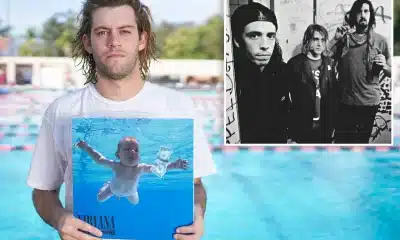
 Business5 months ago
Business5 months agoFederal Court Revives Lawsuit Against Nirvana Over 1991 ‘Nevermind’ Naked Baby Album Cover
-
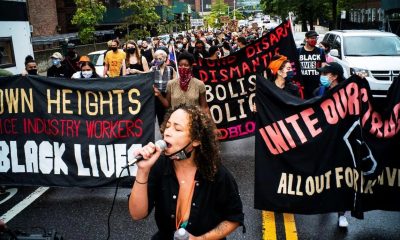
 News5 months ago
News5 months agoThe Rise of Woke Ideology in Western Culture
-
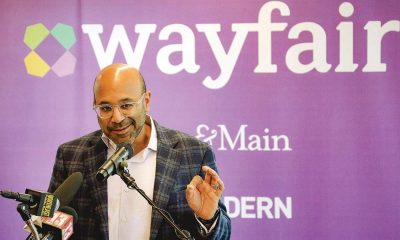
 Business5 months ago
Business5 months agoWayfair CEO: Employees Need To Work Longer Hours, After Laying Off 5% Off The Company
-

 Learning4 days ago
Learning4 days agoExploring TVA Nouvelles Quebec’s Premier News Source

